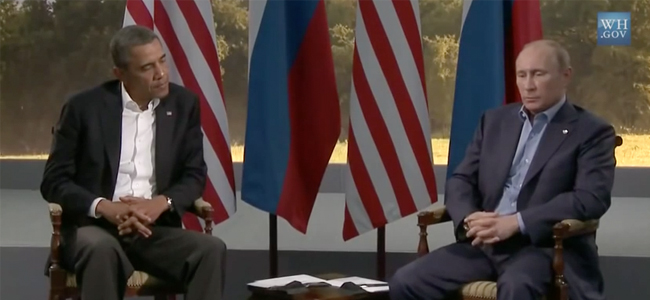A quarter-century of American diplomatic arrogance toward Russia, and the exploitation and temporary ruination of the Russian economy by the combined forces of Washington, Wall Street, and the Harvard Economics Department, are currently reaping their just deserts. (See “Wreckers and Builders,” by Anne Williamson.) Following the collapse of the Soviet Union in 1991, the possibility for rapprochement between the United States and Russia was a real possibility. (Kissinger did not wait on the fall of the People’s Republic of China to establish relations with Beijing.) But America’s smugly superior hectoring of the Kremlin to turn the country into a liberal democracy in the Western style, having made reconciliation impossible, further ensured that the Russians would do just the opposite of what the Americans wished, domestically and abroad—and not just the “near abroad.” In short, the United States created her own new rival over the grave of the old one. Because the Russian establishment lives in the real world, and its American counterpart in a make-believe one, that was a very foolish thing for it to do. For this the U.S. is now paying a price—in humiliation, certainly, and perhaps in global power and reach as well. In its attempts to deal with the Kremlin, Washington so far has managed only to demonstrate how far its strategic diplomacy is being outclassed by Putin and his government.
In the wake of the collapse of the Russian-American agreed truce in Syria, Putin’s warning to the U.S. not to attack the Syrian army, and now his suspension of the plutonium disposition agreement, Kerry, Obama, and the rest of them are sounding like Eleanor Roosevelt in one of her more overwrought columns. Cynicism, realpolitik, and illiberal values are coming in for a thumping. But it is too late. Kerry the Wonder Boy has exploded (or is it imploded?) at last, and events have passed out of the hands of the United States, if indeed they ever had hold of them. Putin had many reasons, including realpolitik, to intervene in Syria, but it is certainly possible that he decided that the situation could never be solved diplomatically, and that a sudden explosive end, however brutal, to the war would be no worse than allowing it to run on indefinitely, with unforeseen lethality.
Obviously, America and the rest of the West are intellectually and emotionally incapable of such a decision. But what are they capable of any longer? Running back to the United Nations, or to Geneva, or electing Hillary Clinton president of the United States, but not much else. How ironic, should Vladimir Putin, in part the West’s own creation, succeed in bringing the war to a close by forcing the rebels to surrender to Assad (who cannot possibly be worse than many another Middle Eastern potentate)—something the United States should have encouraged (or warned) them to do years ago. Most ironic would be the fact that the West really wouldn’t have deserved this particular deus ex machina to make up its mind for it.

Leave a Reply